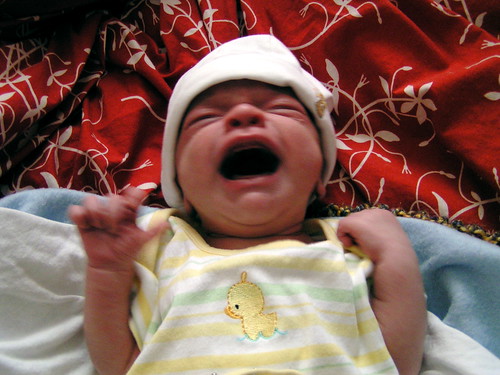
Bill Easterly’s blog, Aid Watch, is taking some criticism in the development blogosphere right now. I normally try to avoid discussions like this because, honestly, my opinions change every 35 seconds about what the right way to blog about development is. (Or, for that matter, to do development.) We all have different ways of writing, and different motivations for our blogging. But I’m an occasional contributor to Aid Watch, and some people have questioned why. I feel like I should get into this one, at least a little bit.
For those of you who don’t obsessively follow (like I do) the RSS feed of every existing development blog, Transitionland, The Big Push, and Siena Anstis have all recently called out Aid Watch for not contributing to discussion about international development in a useful way. They’ve called it a pointless echo chamber and an unproductive and mean-spirited use of time. Prof. Easterly has responded by linking to their critiques, and defending the use of satire.
I see both sides. I think that Prof. Easterly is too quick to blame aid agencies and NGOs for problems that are systemic. He blames individual actors for doing things that are incentivized by the development industry. I would like him to write and think more about fixing the system than attacking the individual organizations. And I agree that his tone can be snarky to a degree that stops being funny and makes you tune the post out.
On the other hand, the system needs someone who will speak truth to power (or, in this case, development money). And I know from my own experience that the blunter and snarkier you are when writing about development, the more people listen. How many times have I written about the damage done by poorly considered in-kind donations? But I never got any attention until I wrote a post called “Nobody wants your old shoes.” Then all of a sudden, I was getting quoted in the NY Times.
Prof. Easterly is nasty because being nasty makes people listen. People listen because he’s willing to say things no one else will, and he says them loud and mean. Sometimes he crosses the line. But sometimes he says exactly what needs to be said.
I think that your view on the Aid Watch blog depends on where you’re standing. If you are working in development, actually doing the hard jobs and fighting to make an impact, then Aid Watch feels like one more attack on your efforts. If you are in DC, though, or Geneva or London, exposed on a daily basis to the ugly business end of development funding, then Aid Watch is like watching Dorothy unmask the Wizard of Oz. Sometimes, behind the rhetoric, there is nothing but an empty space. We need somebody to point that out.
I’m in Dushanbe now, it’s true. And I’m fighting to support a project I care about. But my last job was Washington, on the donor side, in one of the deepest and most obscure nooks of the development bureaucracy. The memory hasn’t faded just yet.
My take on Aid Watch varies from day to day. Sometimes it offends me, sometimes the thinking seems shallow, sometimes I want to stand up and cheer. But I wouldn’t call it useless.




